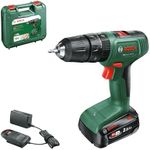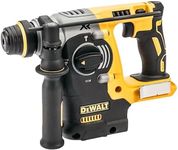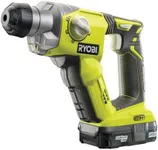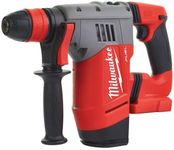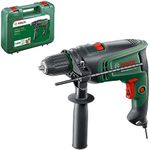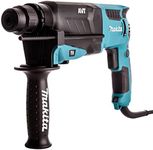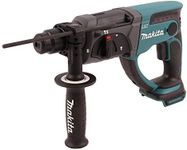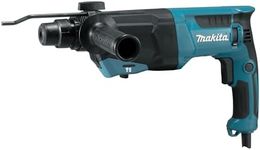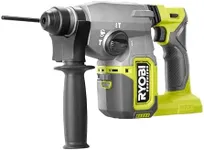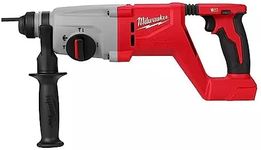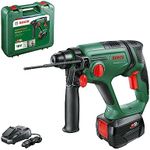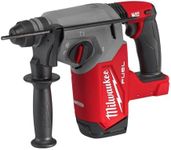Buying Guide for the Best Hammer Drills
Choosing the right hammer drill can make a significant difference in the efficiency and ease of your drilling tasks. Hammer drills are versatile tools used for drilling into hard materials like concrete, brick, and stone. To find the best hammer drill for your needs, it's important to understand the key specifications and how they relate to your specific requirements. Here are the main specs to consider when selecting a hammer drill.Power (Amps or Volts)Power is a crucial spec for hammer drills as it determines the tool's ability to handle tough materials. Power is usually measured in amps for corded drills and volts for cordless ones. Higher power ratings mean the drill can handle more demanding tasks. For light to medium tasks, a drill with 5-8 amps (corded) or 12-18 volts (cordless) should suffice. For heavy-duty tasks, look for drills with 8-10 amps or 18-24 volts. Choose based on the intensity and frequency of your drilling needs.
Hammering Rate (BPM)The hammering rate, measured in blows per minute (BPM), indicates how many times the hammer mechanism strikes the material per minute. A higher BPM means faster and more efficient drilling in hard materials. For occasional home use, a BPM of around 20,000-30,000 is adequate. For professional or frequent use, look for a BPM of 30,000 or higher. Consider the type of materials you'll be drilling into and how quickly you need to complete your tasks.
Speed (RPM)Speed, measured in revolutions per minute (RPM), affects how quickly the drill bit rotates. Variable speed settings allow for better control over different materials and tasks. Lower speeds are better for drilling into hard materials, while higher speeds are suitable for softer materials. For general use, a drill with a range of 0-1,500 RPM is versatile. If you need more precision and control, look for models with multiple speed settings.
Chuck SizeThe chuck size determines the maximum diameter of the drill bit that can be used. Common sizes are 1/2 inch and 3/8 inch. A 1/2 inch chuck is more versatile and can handle larger bits, making it suitable for heavy-duty tasks. A 3/8 inch chuck is lighter and more compact, ideal for lighter tasks and easier handling. Choose based on the size of the holes you need to drill and the types of bits you plan to use.
Weight and ErgonomicsThe weight and ergonomics of a hammer drill affect user comfort and fatigue during extended use. Heavier drills are generally more powerful but can be tiring to use for long periods. Lighter drills are easier to handle but may not be as powerful. Look for a drill with a comfortable grip, balanced weight, and features like anti-vibration handles. Consider how long you'll be using the drill and how important comfort is to you.
Corded vs. CordlessCorded hammer drills offer continuous power and are generally more powerful, making them suitable for heavy-duty tasks. However, they require access to a power outlet. Cordless drills offer greater mobility and convenience, ideal for tasks in remote locations or where outlets are not available. They rely on battery life, so consider the battery capacity and charging time. Choose based on where you'll be using the drill and whether you prioritize power or mobility.
